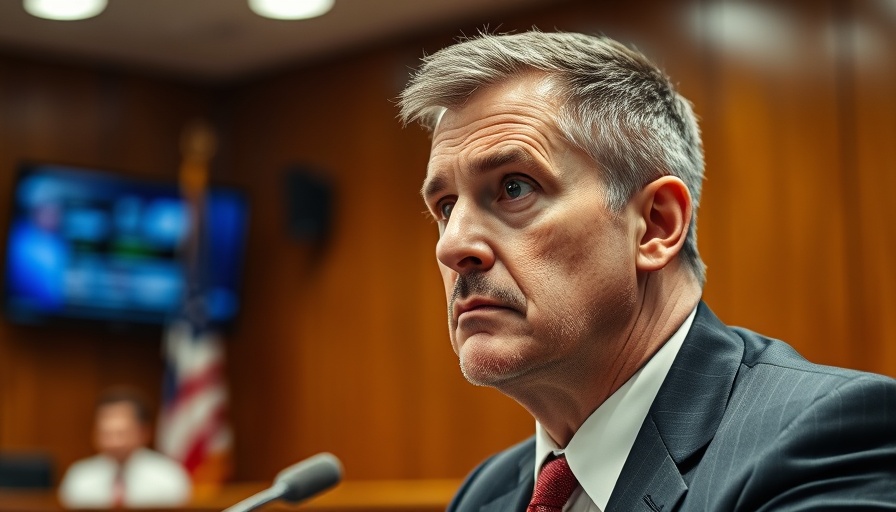
Police Takeover: An Unfolding Controversy in Washington, D.C.
The recent federal takeover of the District of Columbia's police department has ignited a passionate debate among lawmakers, local residents, and political commentators. The action, undertaken by the Trump administration, prompted both support and condemnation from various political circles. Advocates argue that this intervention could enhance safety, while opponents raise concerns about its implications for local governance and public trust in law enforcement.
In 'The debate over the effectiveness of Trump's DC Police takeover', the discussion dives into the implications of federal intervention in local policing, prompting deeper analysis on our end.
Political Perspectives: Voices from Both Sides
In a striking exchange featured on The Pulse, veteran political figures Sherry Gay-Dagnogo and Terry Johnson weighed in on the issue, showcasing contrasting views. Johnson argues that bolstering police presence through federal support is vital in communities struggling with safety, calling for the use of available resources to ensure the public feels secure. However, gay-Dagnogo contests this by highlighting the adverse historical impacts of military presence in urban areas, particularly in communities of color. She emphasizes the need for community engagement and holistic solutions to address safety concerns rather than resorting to increased militarization.
Local Reaction: Residents Push Back
The federal intervention has not only stirred discussions among politicians but has also drawn protests from residents of Washington, D.C. Many locals express skepticism about federal authority overriding local police management, arguing that the move could exacerbate existing divisions and distrust between communities and law enforcement. Community activist groups have organized demonstrations to voice their displeasure, insisting that D.C. residents should have a direct say in how their city is policed.
Historical Context: Learning from Past Mistakes
Reflecting on the current scenario, we can draw parallels to historical moments when federal military presence in cities, like during the civil rights movement, led to heightened tensions rather than increased safety. Historical instances often highlight that trust between communities and police is crucial for effective law enforcement, a trust that can be undermined by heavy-handed interventions. The conversation around D.C.’s police takeover thus raises questions about the delicate balance of ensuring public safety while respecting local governance and community autonomy.
Future Predictions: What Lies Ahead?
As the 28-day mandate for federal policing in D.C. unfolds, anticipation builds around its outcomes. Will crime statistics reflect improvement, or will the intervention deepen existing community rifts? Analysts suggest that the future effectiveness of this takeover will largely depend on whether local leaders and community members feel engaged in the resulting strategies. Each side’s willingness to collaborate could ultimately pave the way for a responsible resolution, showcasing a model for similar cases in communities across the country.
Relevance to Current Events: Painting the Bigger Picture
This issue extends beyond D.C. as governors like California's Gavin Newsom grapple with their own policing challenges and engage in public disputes with the Trump administration. The interplay of local, state, and federal tactics in policing looks set to be a continued theme in political discourse, particularly as the nation faces growing debates over public safety, racial justice, and police reform. Voter attitudes in places like Michigan will be crucial in shaping the landscape of policing and governance moving forward.
What Can the Detroit Community Learn?
For residents of Detroit and Metro Detroit, the dialogue surrounding the D.C. police takeover serves as a vital reference point. It underscores the importance of local involvement in governance, especially specific law enforcement actions that directly affect community dynamics. Looking forward, it's crucial for Michigan constituents to remain proactive in discussions about public safety, law enforcement reform, and community policing, ensuring voices are heard in the law-making process.
Ultimately, in a time of heightened sensitivity around issues of crime and policing, communities must engage in open dialogues to establish trust while advocating for fair and representative governance. The outcome of the D.C. case will likely serve as a bellwether for other cities grappling with similar challenges across the nation.
 Add Row
Add Row  Add
Add 



Write A Comment